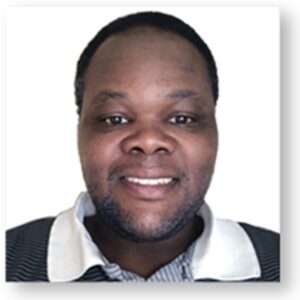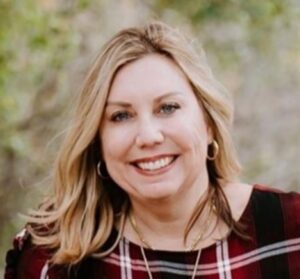Clinical Researcher—April 2022 (Volume 36, Issue 2)
IRBs IN FOCUS
Contributed by WCG IRB
When people consider a career in ethical review at an institutional review board (IRB), they tend to imagine themselves sitting in board meetings evaluating clinical research protocols and informed consent forms. However, the range of positions at an IRB is much broader and far more diverse. This column features three employees in very different roles at WCG IRB describing their current duties and the competencies required to excel at what they do for the clinical research enterprise.
Heather Kim, MS, RAC, CIP
Manager, Quality Assurance (QA)

I joined WCG IRB as an intern and am now QA Manager on the IRB’s Compliance team.
I was originally interested in regulatory affairs, which is on the sponsor side of the industry, preparing and submitting Investigational New Drug and New Drug Applications to the U.S. Food and Drug Administration (FDA). I had studied for the Regulatory Affairs Certification Exam and obtained my master’s in Regulatory Affairs. During my studies, there was perhaps one chapter on IRBs, so I knew the basic purpose of an IRB, but not much else.
Copernicus Group IRB [now part of WCG IRB] had an internship program, and I thought that would be a great way to get started in the regulatory field. Once I started the internship, I discovered a completely different, fascinating regulatory field—one in which the IRB interacts with both the FDA and investigators. I was attracted to the role, knowledge, and specialization it gave me, but also to the people; I really fell in love with the company. I had a great team and a great boss, and that really helped me to develop as a young professional.
In my current role, every day is different and my workload shifts constantly. It’s a challenge, and that’s what I love about it! There are eight members of the Compliance team, and we are based throughout the U.S. My responsibilities have really run the gamut. They include managing standard operating procedures; overseeing the document workflow; investigating site noncompliance; providing regulatory support for the IRB staff and the IRB chairs; answering questions from sponsors, clinical research organizations (CROs), and sites; developing corrective and preventive actions (CAPAs); hosting FDA inspections; and helping to respond to any questions or concerns during an audit. I also manage clinical trial participant calls, since the IRB is listed as a contact.
This position requires diplomacy and strong interpersonal and communication skills. You are dealing with a wide variety of situations—from internal discussions regarding errors, to handling auditor findings, to speaking with upset clinical trial participants. I really enjoy the problem-solving aspect of the job and working toward solutions in a collaborative way.
I am also a Type A personality; if you are in quality or compliance, you need that type of personality. There is room for some flexibility, but you must be detail oriented and always dot your i’s and cross your t’s. If you are in the Quality department, it’s expected that things be done right the first time.
WCG IRB’s mission to protect the rights and welfare of human participants and advance clinical research is very important to me. The company has been at the forefront of the IRB industry for many years and paved the way for the establishment of the central IRB model.
To this day, we continue to work with large academic medical centers, pharmaceutical companies, CROs, and independent research sites to assist in ethical review oversight, streamlining study start-up efficiencies, and aligning with our partners on operational processes related to their trials. It has been very exciting to be part of advancements in the industry.
Marcus Lias
Lead, Client Care Center

As the Lead in the Client Care Center, I respond to clients directly regarding any of their clinical study review questions. I will communicate via phone calls, chats, and e-mails with sponsors, CROs, sites, and clinical trial participants. I also help manage the training for any new staff members who join our department.
There are many client care specialists in our team, and we manage calls predominantly from the U.S. and Canada. Since we are a global company, we have teammates in other countries, too. While we do not work directly with participants like a site does, participants do contact us when they have questions about a study. For example, we will go over an informed consent form with a participant, making sure that’s clear. If there is an issue that we can’t help to resolve, we refer it to a Participant Protection Liaison, such as Heather Kim, who will address their concern promptly with the site.
We also work with sponsors. We understand what they are going through trying to meet their goals and time frames to get studies off the ground and patients enrolled. We also help sites and principal investigators at their institutions. As members of the Client Care team, it’s integral that we understand what our clients need, which is always changing, so we are always learning. I have worked at WCG IRB for nearly seven years, and I still learn things every single day. It’s great!
This role requires a good customer service background, strong communication and problem-solving skills, and the ability to think quickly on your feet. You also need empathy, to understand how people are feeling. I have been in customer service for about 20 years, so I know how to respond to people. Customer service is not for everybody, but it is definitely for me.
I enjoy being involved, being able to help participants, and knowing that the clinical studies our company reviews and approves help people either in the future or currently for Compassionate Use cases [formally known as Expanded Access cases by the FDA].
At the start of the pandemic, we were triaging issues that nobody in the industry had faced before. There were lots of questions from our clients and lots of changes to the way studies were being conducted. Everybody was going remote with their site visits and not having participants come into a location anymore, and we had to know how that works and how to get the appropriate approvals. We are trained on how processes work as an IRB, so we know what they can do. We are also constantly getting updates from our board panel members on different review types and changes to the regulations. Then I must train my team on how we’re handling those changes.
I like knowing that we are helping people to get healthy and be the best that they can be. It feels good to hear about projects that we have worked on in the news. We had a client that helped the White House to get COVID-19 tests in homes. We were involved directly, e-mailing back and forth all the time, trying to get it done and processed as soon as possible because we knew the need for it. We put our heart into what we’re doing. It’s not about money. It’s about helping people. We’re all about the human participants and making sure that they’re taken care of. There have been Compassionate Use cases where a physician was trying to get access to a therapy to treat one of their patients, and we helped them get approval as soon as we could, and that saved somebody’s life. It’s a cheering moment for the entire team!
Michele Baptista
Director, Business Development

I joined WCG IRB on June 1, 2014, when it acquired Aspire IRB. I cofounded Aspire, which was the first female- and minority-led independent IRB.
Originally, I did not set out to join the Business Development (BD) team. However, the WCG leadership team recognized that I had the requisite skillset and thought I would be good at it, so I decided to give it a try for a couple of years. That was almost eight years ago. I am very grateful to them for seeing my potential. I have 30-plus years of IRB experience, I am honest and trustworthy, and I connect with people well. It turns out that I fit into the BD world well, and I love it!
As a small business owner, I wore many hats and was constantly pulled in a lot of directions. In my new role, it is great to be able to focus on one area and really excel. As Director of BD for the WCG IRB and institutional biosafety committee (IBC) sponsor/CRO team, I partner with current clients and research new companies that may need an IRB for their upcoming trial or portfolio of trials. I focus on small- to medium-size biotechnology, medical device, diagnostic, and biologic companies in the U.S., Canada, and Puerto Rico. Some of them have preclinical products and will not need an IRB until their first-in-human studies.
That said, advance planning is important to expedite the study start-up process, especially for gene therapy trials, which require both IRB and IBC reviews. I also work with the smaller, niche CROs and independent Phase I clinical research sites. Due to the nature of my work, I partner regularly with experts in our gene therapy, biotechnology, and scientific and regulatory divisions.
One of the most rewarding aspects of my job is helping people who feel a little lost regarding the IRB process. I have met engineers at some of the medical device companies that I work with who say, “I have this device and I need an IRB.” They don’t have a protocol; they don’t have a plan or a pathway through the FDA to get approval. They just have an idea and their device, and someone told them they needed an IRB. It is fun to lead them through a process that sounds very complicated and make it simple.
I am inspired by collaboration and human interaction, so staying focused while working from home during the pandemic was a challenge. I participated in a lot of videoconferencing and FaceTime calls with my teammates, discussing what we were working on, and helping each other stay motivated.
I also started the external Coffee Klatch Networking Group, which met once a month via Zoom. WCG was hosting a series of solution-oriented weekly webinars on pandemic-related topics. [It ultimately held 40 webinars, which were attended by 70,000 industry professionals]. At the Coffee Klatch, we took turns talking about what we learned from the webinars and discussing our personal experiences. Whether a member was a vice president of clinical operations at a biotech company, a project manager at a CRO, or a study coordinator at a site, we were all trying to navigate this new reality together. We had 10 to 15 people on every call, and it was great.
Prior to the pandemic, our team probably spent 80% of the time on the road. So, when offices across the country started to close, the first challenge was figuring out how to do our jobs from home when we could not be out talking to people. At the time, that was a huge shift—like a train hitting a wall! However, we all quickly discovered new ways of working together, and it will be interesting to see what the future holds as businesses start to open back up. I doubt that we will return to 80% travel; it will likely be a hybrid model with a mix of in-person and at-home/Zoom meetings. There is certainly value in having in-person interactions with clients, but reduced travel time has enabled us to be more productive and devote longer periods of time connecting to one another.
I am proud to say that the career experience at our company is unparalleled. I have a long history in the IRB business, and WCG is the “who’s who” of the industry. The people that I used to take classes from at the PRIM&R Annual Conference are now my coworkers. It’s like growing up wanting to be an NFL player and then being on an NFL team.
WCG IRB puts a lot of effort into regulatory intelligence, quality control, quality assurance, and continuous improvement. People look to us to tell them how to apply the regulations during the pandemic. I wouldn’t feel comfortable working anywhere else.
Conclusion
As the experiences of this trio illustrate, there are many varied, but equally rewarding, roles available for clinical research professionals who would like to pursue a career at an IRB.
▲▼▲



